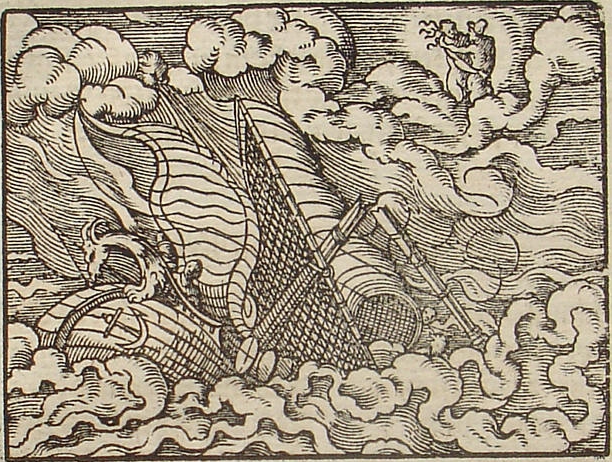According to the Wikipedia entry on halcyon:
A halcyon (pronounced /ˈhælsiən/) is a mythical bird—often identified as a kingfisher—said to breed in a floating nest at sea during the winter solstice, during which time it charms the wind and waves into calm. The term originates from the Greek myth of Alcyone. In popular use, can also mean to harken back to an earlier (usually fond) time.Two Greek myths feature a character named Halcyone, sometimes spelled Alcyone.
The first tells the story of seven nymphs--one of whom is called Halcyone--known collectively as the Pleiades. They are the daughters of the Titan Atlas and the sea-nymph Pleione. Following the defeat of the Titans in their war with the Olympians, Zeus condems Atlas to support the heavens on his shoulders. In the wake of Atlas's punishment, Orion, the giant huntsman, pursues the Pleiades. Zeus intervenes to give some comfort to Atlas, transforming the sisters first into doves and later into a constellation. Orion also becomes a constellation and continues to chase the sisters across the night sky. (Is it a good thing to be transformed into a constellation?)
The second myth identifies Halcyone as the daughter of Aeolus, the ruler of the winds. She is married to Ceyx, the king of Thessaly. In some versions of the story, the pair compare themselves to Zeus and Hera, angering Zeus. During a sea voyage, Ceyx drowns in a storm and appears to Halcyone in a dream to tell her of his death. Overcome with grief, Halcyone throws herself into the sea. As an act of compassion, the gods transform Ceyx and Halcyone into kingfishers. The phrase "halcyon days" refers to seven days in winter that are free of storms. According to myth, Halcyone makes a nest on a beach for seven days each winter. Her father Aeolus calms the winds and waves, allowing the kingfisher Halcyone to tend her eggs in safety. (The engraving depicts Ceyx's death in the storm.)
Picture Credit: Sacred kingfisher; attributed to Fir0002/Flagstaffotos; used under the GFDL license which can be viewed at http://commons.wikimedia.org/wiki/Commons:GNU_Free_Documentation_License,_version_1.2.


Spirits of the dead coming back to inform their immediate family of their death... I seem to remember that happening in the Odyssey as well.
ReplyDelete